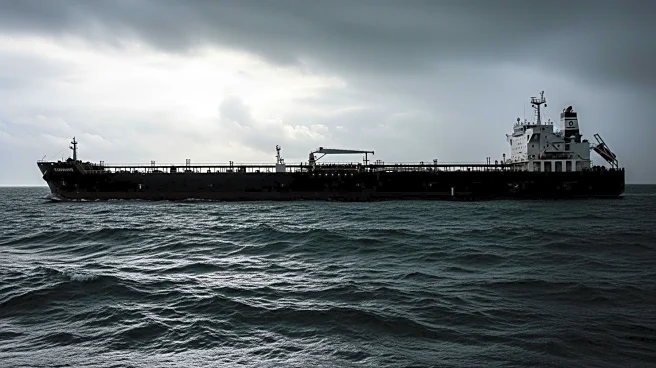What's Happening?
China's Qingdao Port, a major hub for crude oil imports, is set to implement new restrictions targeting 'shadow fleet' tankers. These vessels, often used to transport sanctioned crude from countries like Russia, Iran, and Venezuela, operate outside Western shipping and insurance systems. The new measures, effective November 1, will prohibit tankers with fabricated International Maritime Organization numbers, those over 31 years old, and ships with a history of pollution or accidents. Additionally, vessels with expired or invalid certificates will be banned. The restrictions are seen as a response to increased international sanctions pressure, with the share of sanctioned crude imports rising significantly in recent years.
Why It's Important?
The restrictions at Qingdao Port highlight the growing impact of international sanctions on China's oil import practices. As China is a major buyer of Russian and Iranian oil, these measures could disrupt the flow of sanctioned crude, affecting global oil markets. The move also reflects China's cautious approach to avoid secondary sanctions, which could have broader economic implications. The decision underscores the delicate balance China must maintain between securing energy supplies and adhering to international sanctions, potentially influencing global oil prices and trade dynamics.
What's Next?
The U.S. has yet to impose similar sanctions on Chinese refiners, but the situation remains fluid. Any future actions by the U.S. could further complicate China's oil import strategies and impact global oil prices. The international community will be watching closely to see how China navigates these restrictions and whether it will adjust its import practices to comply with global sanctions. The potential for increased scrutiny and pressure on Chinese ports and refiners could lead to further regulatory changes in the future.









